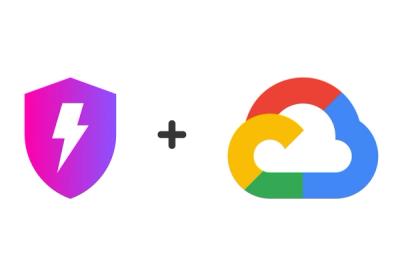
Security News
Next.js Patches Critical Middleware Vulnerability (CVE-2025-29927)
Next.js has patched a critical vulnerability (CVE-2025-29927) that allowed attackers to bypass middleware-based authorization checks in self-hosted apps.
.. image:: https://travis-ci.org/infobloxopen/infoblox-client.svg?branch=master :target: https://travis-ci.org/infobloxopen/infoblox-client
.. image:: https://img.shields.io/pypi/v/infoblox-client.svg :target: https://pypi.python.org/pypi/infoblox-client
.. image:: https://codecov.io/github/infobloxopen/infoblox-client/coverage.svg?branch=master :target: https://codecov.io/github/infobloxopen/infoblox-client?branch=master
.. image:: https://readthedocs.org/projects/infoblox-client/badge/?version=latest :target: http://infoblox-client.readthedocs.org/en/latest/?badge=latest
Client for interacting with Infoblox NIOS over WAPI.
Install infoblox-client using pip:
::
pip install infoblox-client
Configure logger prior to loading infoblox_client to get all debug messages in console:
.. code:: python
import logging logging.basicConfig(level=logging.DEBUG)
Low level API, using connector module
Retrieve list of network views from NIOS:
.. code:: python
from infoblox_client import connector
opts = {'host': '192.168.1.10', 'username': 'admin', 'password': 'admin'}
conn = connector.Connector(opts)
# get all network_views
network_views = conn.get_object('networkview')
# search network by cidr in specific network view
network = conn.get_object('network', {'network': '100.0.0.0/8', 'network_view': 'default'})
For these request data is returned as list of dicts:
.. code:: python
network_views:
[{u'_ref': u'networkview/ZG5zLm5ldHdvcmtfdmlldyQw:default/true',
u'is_default': True,
u'name': u'default'}]
network:
[{u'_ref': u'network/ZG5zLm5ldHdvcmskMTAwLjAuMC4wLzgvMA:100.0.0.0/8/default',
u'network': u'100.0.0.0/8',
u'network_view': u'default'}]
High level API, using objects
~~~~~~~~~~~~~~~~~~~~~~~~~~~~~
Example of creating Network View, Network, DNS View, DNSZone and HostRecord using NIOS objects:
.. code:: python
from infoblox_client import connector
from infoblox_client import objects
opts = {'host': '192.168.1.10', 'username': 'admin', 'password': 'admin'}
conn = connector.Connector(opts)
Create a network view, and network:
.. code:: python
nview = objects.NetworkView.create(conn, name='my_view')
network = objects.Network.create(conn, network_view='my_view', cidr='192.168.1.0/24')
Create a DNS view and zone:
.. code:: python
view = objects.DNSView.create(conn, network_view='my_view', name='my_dns_view')
zone = objects.DNSZone.create(conn, view='my_dns_view', fqdn='my_zone.com')
Create a host record:
.. code:: python
my_ip = objects.IP.create(ip='192.168.1.25', mac='aa:bb:cc:11:22:33')
hr = objects.HostRecord.create(conn, view='my_dns_view',
name='my_host_record.my_zone.com', ip=my_ip)
Create host record with Extensible Attributes (EA):
.. code:: python
ea = objects.EA({'Tenant ID': tenantid, 'CMP Type': cmptype,
'Cloud API Owned': True})
host = objects.HostRecord.create(conn, name='new_host', ip=my_ip, extattrs=ea)
Create a host record with inherited Extensible Attributes (EA):
.. code:: python
my_ip = objects.IP.create(ip='192.168.1.25', mac='aa:bb:cc:11:22:33', use_for_ea_inheritance=True)
hr = objects.HostRecord.create(conn, view='my_dns_view',
name='my_host_record.my_zone.com', ip=my_ip)
Set the TTL to 30 minutes:
.. code:: python
hr = objects.HostRecord.create(conn, view='my_dns_view',
name='my_host_record.my_zone.com', ip=my_ip,
ttl = 1800)
Create a new host record, from the next available IP in a CIDR, with a MAC address, and DHCP enabled:
.. code:: python
next = objects.IPAllocation.next_available_ip_from_cidr('default', '10.0.0.0/24')
my_ip = objects.IP.create(ip=next, mac='aa:bb:cc:11:22:33', configure_for_dhcp=True)
host = objects.HostRecord.create(conn, name='some.valid.fqdn', view='Internal', ip=my_ip)
Reply from NIOS is parsed back into objects and contains next data:
.. code:: python
In [22]: hr
Out[22]: HostRecordV4: _ref=record:host/ZG5zLmhvc3QkLjQuY29tLm15X3pvbmUubXlfaG9zdF9yZWNvcmQ:my_host_record.my_zone.com/my_dns_view, name=my_host_record.my_zone.com, ipv4addrs=[<infoblox_client.objects.IPv4 object at 0x7f7d6b0fe9d0>], view=my_dns_view
Create a new fixed address, with a MS server DHCP reservation:
.. code:: python
obj, created = objects.FixedAddress.create_check_exists(connector=conn,
ip='192.168.100.100',
mac='aa:bb:cc:11:22:33',
comment='My DHCP reservation',
name='My hostname',
network_view='default',
ms_server={'_struct': 'msdhcpserver',
'ipv4addr': '192.168.0.0'})
High level API, using InfobloxObjectManager
Create a new fixed address, selecting it from the next available IP in a CIDR:
.. code:: python
from infoblox_client.object_manager import InfobloxObjectManager
new_address = InfobloxObjectManager(conn).create_fixed_address_from_cidr(netview='default', mac='aa:bb:cc:11:22:33', cidr='10.0.0.0/24', extattrs=[])
What you get back is a FixedAddressV4 object.
All top level objects support interface for CRUD operations. List of supported objects is defined in next section.
create(cls, connector, check_if_exists=True, update_if_exists=False, **kwargs)
Creates object on NIOS side.
Requires connector passed as the first argument, check_if_exists and update_if_exists are optional.
Object related fields are passed in as kwargs: field=value, field2=value2.
search(cls, connector, return_fields=None, search_extattrs=None, force_proxy=False, **kwargs)
Search single object on NIOS side, returns first object that match search criteria.
Requires connector passed as the first argument.
return_fields can be set to retrieve particular fields from NIOS,
for example return_fields=['view', 'name'].
If return_fields is [] default return_fields are returned by NIOS side for current wapi_version.
search_extattrs is used to filter out results by extensible attributes.
force_proxy forces search request to be processed on Grid Master (applies only in cloud environment)
search_all(cls, connector, return_fields=None, search_extattrs=None, force_proxy=False, **kwargs)
Search all objects on NIOS side that match search criteria. Returns a list of objects.
All other options are equal to search().
update(self)
Update the object on NIOS side by pushing changes done in the local object.
delete(self)
Deletes the object from NIOS side.
All NIOS Objects are supported in the 0.6.2 version release. check infoblox_client/objects.py for description of the objects. Newly supported objects
AAAADtcRecordAAAARecordAAAASharedRecordADtcRecordADtcRecordBaseARecordARecordBaseASharedRecordASharedRecordBaseAdAuthServerAdAuthServiceAddressacAdmingroupAdminroleAdminuserAliasRecordAllendpointsAllnsgroupAllrecordsAllrpzrecordsAnyMemberApprovalworkflowAuthpolicyAwsrte53TaskAwsrte53TaskgroupAwsuserBaseObjectBfdtemplateBgpasBulkhostBulkhostnametemplateCNAMEDtcRecordCNAMERecordCNAMESharedRecordCaaRecordCacertificateCapacityreportCapacityreportObjectcountCaptiveportalCaptiveportalFileCertificateAuthserviceChangedobjectCiscoiseEndpointClientsubnetdomainCsvimporttaskDHCPLeaseDHCPRoamingHostDNSViewDNSZoneDNSZoneDelegatedDNSZoneForwardDbObjectsDbsnapshotDdnsPrincipalclusterDdnsPrincipalclusterGroupDeletedObjectsDhcidRecordDhcpOptionDefinitionDhcpOptionDefinitionV4DhcpOptionDefinitionV6DhcpOptionSpaceDhcpOptionSpaceV4DhcpOptionSpaceV6DhcpStatisticsDhcpddnsDhcpfailoverDhcpmemberDhcpoptionDiscoveryDiscoveryAutoconversionsettingDiscoveryCiscoapicconfigurationDiscoveryClicredentialDiscoveryDeviceDiscoveryDevicecomponentDiscoveryDeviceinterfaceDiscoveryDeviceneighborDiscoveryDevicesupportbundleDiscoveryDiagnostictaskDiscoveryGridpropertiesDiscoveryIfaddrinfoDiscoveryMemberpropertiesDiscoveryNetworkinfoDiscoveryPortDiscoveryScaninterfaceDiscoverySeedrouterDiscoverySnmp3CredentialDiscoverySnmpcredentialDiscoveryStatusDiscoveryVlaninfoDiscoveryVrfDiscoveryVrfmappingruleDiscoverytaskDiscoverytaskportDiscoverytaskvserverDistributionscheduleDnameRecordDns64GroupDnskeyRecordDnsseckeyDnssectrustedkeyDsRecordDtcDtcAllrecordsDtcCertificateDtcLbdnDtcMonitorDtcMonitorHttpDtcMonitorIcmpDtcMonitorPdpDtcMonitorSipDtcMonitorSnmpDtcMonitorSnmpOidDtcMonitorTcpDtcObjectDtcPoolDtcPoolConsolidatedMonitorHealthDtcPoolLinkDtcServerDtcServerLinkDtcServerMonitorDtcTopologyDtcTopologyLabelDtcTopologyRuleDtcTopologyRuleSourceDtclbdnRecordDxlEndpointDxlEndpointBrokerEAEADefinitionExclusionrangeExclusionrangetemplateExtensibleattributedefListvaluesExtserverExtsyslogbackupserverFileopFilterfingerprintFiltermacFilternacFilteroptionFilterrelayagentFilterruleFingerprintFixedAddressFixedAddressTemplateFixedAddressTemplateV4FixedAddressTemplateV6FixedAddressV4FixedAddressV6ForwardingmemberserverFtpuserGridGridCloudapiGridCloudapiCloudstatisticsGridCloudapiUserGridCloudapiVmGridCloudapiVmaddressGridDashboardGridDhcppropertiesGridDnsGridDnsFixedrrsetorderfqdnGridFiledistributionGridLicensePoolGridLicensePoolContainerGridLicensesubpoolGridMaxminddbinfoGridMemberCloudapiGridServicerestartGroupGridServicerestartGroupOrderGridServicerestartRequestGridServicerestartRequestChangedobjectGridServicerestartStatusGridThreatanalyticsGridThreatprotectionGridX509CertificateGridmemberSoamnameGridmemberSoaserialHostRecordHostRecordV4HostRecordV6HostnamerewritepolicyHotfixHsmAllgroupsHsmSafenetHsmSafenetgroupHsmThalesHsmThalesgroupIPIPAddressIPAllocationIPRangeIPRangeV4IPRangeV6IPv4IPv4AddressIPv4HostAddressIPv6IPv6AddressIPv6HostAddressInfobloxObjectInterfaceIpamStatisticsIpv6NetworksettingKerberoskeyLdapAuthServiceLdapEamappingLdapServerLicenseGridwideLocaluserAuthserviceLogicfilterruleLomnetworkconfigLomuserMXRecordMXSharedRecordMacfilteraddressMastergridMemberMemberDhcppropertiesMemberDnsMemberDnsgluerecordaddrMemberDnsipMemberFiledistributionMemberLicenseMemberParentalcontrolMemberThreatanalyticsMemberThreatprotectionMemberserverMemberservicecommunicationMemberservicestatusMsdhcpoptionMsdhcpserverMsdnsserverMsserverMsserverAdsitesDomainMsserverAdsitesSiteMsserverDcnsrecordcreationMsserverDhcpMsserverDnsMssuperscopeNamedaclNaptrDtcRecordNaptrRecordNatgroupNetworkNetworkContainerNetworkContainerV4NetworkContainerV6NetworkDiscoveryNetworkTemplateNetworkTemplateV4NetworkTemplateV6NetworkV4NetworkV6NetworkViewNetworkuserNetworkviewAssocmemberNodeinfoNotificationRestEndpointNotificationRestTemplateNotificationRestTemplateparameterNotificationRuleNotificationRuleexpressionopNsRecordNsec3ParamRecordNsec3RecordNsecRecordNsgroupNsgroupDelegationNsgroupForwardingmemberNsgroupForwardstubserverNsgroupStubmemberNxdomainruleOcspResponderOption60MatchruleOrderedrangesOrderedresponsepolicyzonesOspfOutboundCloudclientOutboundCloudclientEventParentalcontrolAbsParentalcontrolAvpParentalcontrolBlockingpolicyParentalcontrolIpspacediscriminatorParentalcontrolMspParentalcontrolNasgatewayParentalcontrolSitememberParentalcontrolSpmParentalcontrolSubscriberParentalcontrolSubscribersitePermissionPtrRecordPtrRecordV4PtrRecordV6RadiusAuthserviceRadiusServerRangeTemplateRangeTemplateV4RangeTemplateV6RdatasubfieldRecordnamepolicyRemoteddnszoneRestartservicestatusRirRirOrganizationRpzAIpaddressRecordRpzARecordRpzAaaaIpaddressRecordRpzAaaaRecordRpzCnameClientipaddressRecordRpzCnameClientipaddressdnRecordRpzCnameIpaddressRecordRpzCnameIpaddressdnRecordRpzCnameRecordRpzMxRecordRpzNaptrRecordRpzPtrRecordRpzPtrRecordV4RpzPtrRecordV6RpzSrvRecordRpzTxtRecordRrsigRecordRulesetSRVDtcRecordSRVRecordSRVSharedRecordSamlAuthserviceScavengingtaskScheduledtaskSearchSettingNetworkSettingViewaddressSharedNetworkSharedNetworkV4SharedNetworkV6SharedrecordgroupSmartfolderChildrenSmartfolderGlobalSmartfolderGroupbySmartfolderPersonalSmartfolderQueryitemSnmpuserSortlistSubObjectsSuperhostSuperhostchildSyslogEndpointSyslogEndpointServersSyslogserverTXTRecordTXTSharedRecordTacacsplusAuthserviceTacacsplusServerTaxiiTaxiiRpzconfigTenantTftpfiledirThreatanalyticsModulesetThreatanalyticsWhitelistThreatinsightCloudclientThreatprotectionGridRuleThreatprotectionNatruleThreatprotectionProfileThreatprotectionProfileRuleThreatprotectionRuleThreatprotectionRulecategoryThreatprotectionRulesetThreatprotectionRuletemplateThreatprotectionStatinfoThreatprotectionStatisticsThresholdtrapTlsaRecordTrapnotificationUnknownRecordUpdatesdownloadmemberconfigUpgradegroupUpgradegroupMemberUpgradegroupScheduleUpgradescheduleUpgradestatusUpgradestepUserprofileVdiscoverytaskVlanVlanlinkVlanrangeVlanviewVtftpdirmemberZoneAuthDiscrepancyZoneRpZoneStubZoneassociationZonenameserverUntil 0.4.25 this project supported
NetworkView for 'networkview'
DNSView for 'view'
DNSZone for 'zone_auth'
Member for 'member'
Network (V4 and V6)
NetworkV4 for 'network'NetworkV6 for 'ipv6network'IPRange (V4 and V6)
IPRangeV4 for 'range'IPRangeV6 for 'ipv6range'HostRecord (V4 and V6)
HostRecordV4 for 'record:host'HostRecordV6 for 'record:host'FixedAddress (V4 and V6)
FixedAddressV4 for 'fixedaddress'FixedAddressV6 for 'ipv6fixedaddress'IPAddress (V4 and V6)
IPv4Address for 'ipv4address'IPv6Address for 'ipv6address'ARecordBase
ARecord for 'record:a'AAAARecord for 'record:aaaa'PtrRecord (V4 and V6)
PtrRecordV4 for 'record:ptr'PtrRecordV6 for 'record:ptr'EADefinition for 'extensibleattributedef'
CNAMERecord for 'record:cname'
MXRecord for 'record:mx'
Search for partial match is supported only by low-level API for now. Use '~' with field name to search by regular expressions. Not all fields support search by regular expression. Refer to wapidoc to find out complete list of fields that can be searched this way. Examples:
Find all networks that starts with '10.10.':
.. code:: python
conn = connector.Connector(opts) nw = conn.get_object('network', {'network~': '10.10.'})
Find all host records that starts with '10.10.':
.. code:: python
conn = connector.Connector(opts) hr = conn.get_object('record:host', {'ipv4addr~': '10.10.'})
Utilizing extensible attributes and searching on them can easily be done with the get_object function.
The default field in return_fields acts like the + does in WAPI.
_return_fields+Specified list of fields (comma separated) will be returned in addition to the basic fields of the object (documented for each object).
This enables you to always get the default values in return, in addition to what you specify whether
you search for a network or a networkcontainer,
defined as place_to_check in the code below.
.. code:: python
from infoblox_client.connector import Connector
def default_infoblox_connection():
opts = {'host': '192.168.1.10', 'username': 'admin', 'password': 'admin'}
conn = Connector(opts)
return conn
def search_extensible_attribute(connection, place_to_check: str, extensible_attribute: str, value: str):
"""
Find extensible attributes.
:param connection: Infoblox connection
:param place_to_check: Can be `network`, `networkcontainer` or `record:host` and so on.
:param extensible_attribute: Which extensible attribute to search for. Can be `CustomerCode`, `Location`
and so on.
:param value: The value you want to search for.
:return: result
"""
extensible_args = [
place_to_check,
{
f"*{extensible_attribute}:~": value,
}
]
kwargs = {
'return_fields': [
'default',
'extattrs',
]
}
result = {"type": f"{place_to_check}", "objects": connection.get_object(*extensible_args, **kwargs)}
return result
connection = default_infoblox_connection()
search_network = search_extensible_attribute(connection, "network", "CustomerCode", "Infoblox")
# Print the output:
print(search_network)
{
"type": "network",
"objects": [
{
"_ref": "network/ZG5zLmhvc3QkLjQuY29tLm15X3pvbmUubXlfaG9zdF9yZWNvcmQ:192.168.1.1/28/default",
"comment": "Infoblox Network",
"extattrs": {
"CustomerCode": {
"value": "Infoblox"
}
},
"network": "192.168.1.0/28",
"network_view": "default"
}
]
}
search_host = search_extensible_attribute(connection, "record:host", "CustomerCode", "Infoblox")
# Print the output:
print(search_host)
{
"type": "record:host",
"objects": [
{
"_ref": "record:host/ZG5zLm5ldHdvcmtfdmlldyQw:InfobloxHost",
"extattrs": {
"CustomerCode": {
"value": "Infoblox"
}
},
"ipv4addrs": [
{
"_ref": "record:host_ipv4addr/ZG5zLm5ldHdvcmtfdmlldyQwdvcmtfdmlldyQw:192.168.1.1/InfobloxHost",
"configure_for_dhcp": false,
"host": "InfobloxHost",
"ipv4addr": "192.168.1.1"
}
],
"name": "InfobloxHost",
"view": " "
}
]
}
0.6.2 (2024-12-18)
0.6.1 (2024-11-15)
0.6.0 (2022-11-18)
0.5.2 (2022-10-12)
0.5.1 (2022-03-14)
InfobloxFetchGotMultipleObjects exception #288;0.5.0 (2020-05-14)
0.4.25 (2020-03-12)
0.4.24 (2020-02-25)
0.4.23 (2019-09-10)
0.4.22 (2019-02-21)
0.4.21 (2019-01-18)
0.4.20 (2018-03-27)
0.4.19 (2018-02-06)
0.4.18 (2017-11-20)
0.4.17 (2017-11-09)
0.4.15 (2017-07-18)
0.4.14 (2017-05-18)
0.4.13 (2017-03-01)
0.4.12 (2016-12-08)
0.4.11 (2016-10-31)
0.4.10 (2016-10-24)
0.4.9 (2016-10-24)
0.4.8 (2016-10-10)
0.4.7 (2016-07-14)
0.4.6 (2016-07-01)
0.4.5 (2016-06-13)
0.4.4 (2016-05-11)
0.4.3 (2016-03-28)
0.4.2 (2016-03-04)
0.4.1 (2016-02-26)
0.4.0 (2016-02-19)
0.3.9 (2016-02-18)
0.3.8 (2016-02-17)
0.3.7 (2016-02-12)
0.3.6 (2016-01-28)
0.3.5 (2016-01-22)
0.3.4 (2016-01-21)
0.3.3 (2016-01-20)
0.3.2 (2016-01-19)
0.3.1 (2016-01-14)
0.3.0 (2016-01-14)
0.2.3 (2016-01-06)
0.2.2 (2015-12-23)
0.2.1 (2015-12-18)
0.2.0 (2015-12-17)
0.1.4 (2015-12-08)
0.1.3 (2015-12-04)
0.1.2 (2015-12-02)
0.1.1 (2015-12-01)
0.1.0 (2015-12-01)
0.0.11 (2015-11-25)
0.0.10 (2015-11-19)
0.0.9 (2015-11-13)
0.0.8 (2015-11-12)
0.0.7 (2015-10-27)
get method of the EA class to allow return default values0.0.6 (2015-10-26)
0.0.5 (2015-10-12)
0.0.4 (2015-09-23)
0.0.3 (2015-09-15)
0.0.2 (2015-09-11)
0.0.1 (2015-09-11)
FAQs
Client for interacting with Infoblox NIOS over WAPI
We found that infoblox-client demonstrated a healthy version release cadence and project activity because the last version was released less than a year ago. It has 8 open source maintainers collaborating on the project.
Did you know?

Socket for GitHub automatically highlights issues in each pull request and monitors the health of all your open source dependencies. Discover the contents of your packages and block harmful activity before you install or update your dependencies.

Security News
Next.js has patched a critical vulnerability (CVE-2025-29927) that allowed attackers to bypass middleware-based authorization checks in self-hosted apps.

Security News
A survey of 500 cybersecurity pros reveals high pay isn't enough—lack of growth and flexibility is driving attrition and risking organizational security.

Product
Socket, the leader in open source security, is now available on Google Cloud Marketplace for simplified procurement and enhanced protection against supply chain attacks.